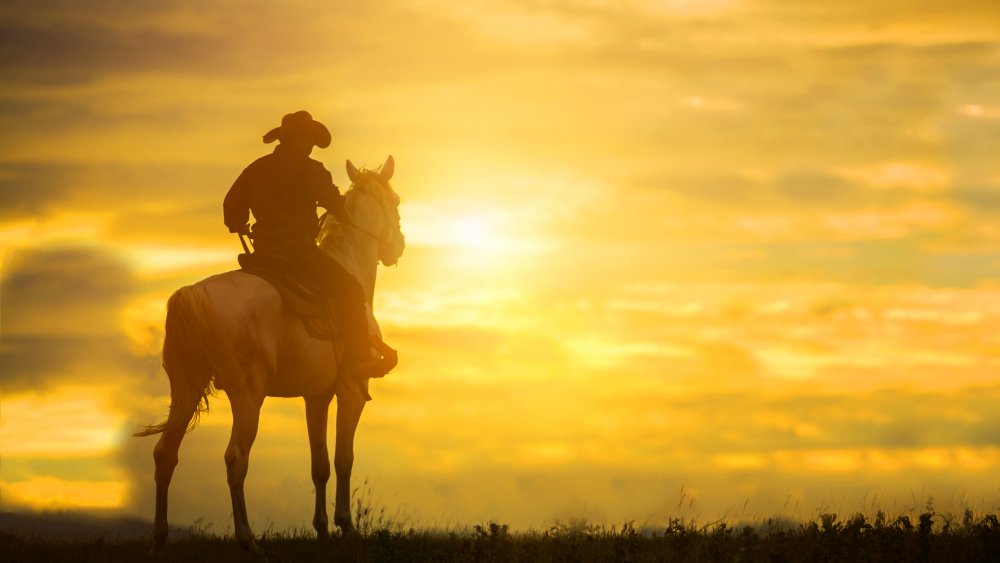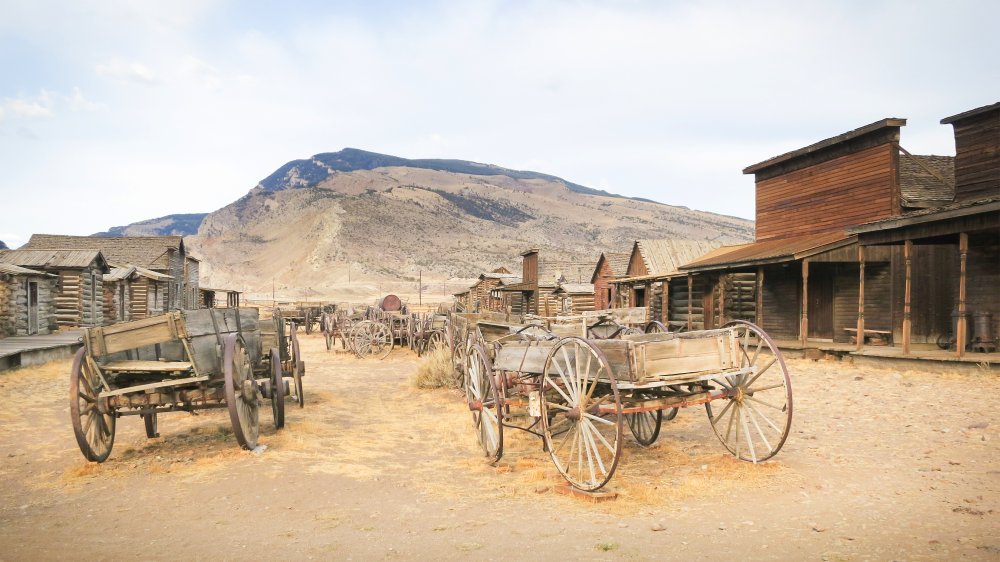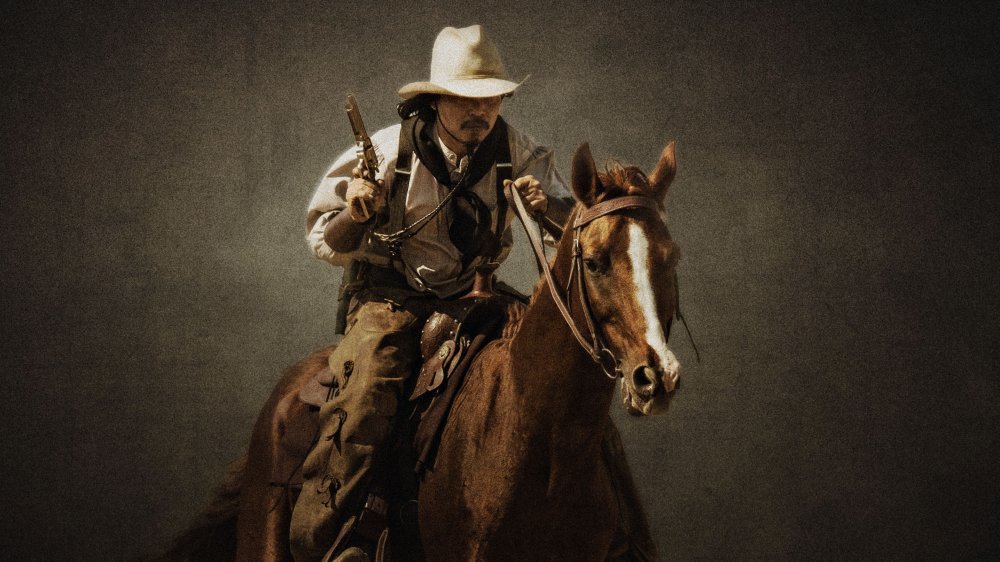What Life Was Life For Explorers In The Wild West
The Wild West is an instantly recognizable touchstone of US culture. And so many of the stories at the heart of it all are ultimately about this one central idea of order prevailing, come what may. It's the idea that if enough people with the right combination of swagger, grit, and ammo get their Stetson encased heads together, then eventually — even if it takes a few gun battles to get there — civilization will fall like a soft and warm blanket across the land. Cue credits, point a couple of world-weary horses at the nearest sunset, and we can all meet at Dennie's after for pancakes. There's a problem though. Well, it's not a problem really, but more of a complication. The Wild West was a bit more nuanced than tough, no-nonsense dudes talking some god-fearin' sense into a wild and unforgiving land.
Take exploration. Even while the West was wild, explorers were a romanticized and set-apart group of individuals. The exploits of pioneering titans like Daniel Boone and Kit Carson were the stuff of the legend, back when these guys — many of whom had tough and painful lives — were still at least partially alive and going about their flawed and human business. These legends served their purpose as a nice sugary coating to a tough and brutish existence, but they grossly simplified matters. Exploring was complicated.
Exploring required a soft touch
Folks who had a habit of riding off half-cocked to find some new and shiny part of the Americas had an annoying tendency of not returning — or at least not with all their bits intact. Sure, managing the logistics of weather, supply-chains and navigation required a lot more than a raccoon tail hat and a can-do attitude. But many of these missions also hinged on decidedly non-valorous things like stealth and diplomacy.
Take the Lewis and Clark expedition of 1804. In their quest to cross the newly acquired western chunk of the country, the explorers had to forge diplomatic relationships, or simply interact with no fewer than fifty separate Indian nations, according to History, many of whom were deeply suspicious and avowed enemies of neighboring tribes. And the consequences of failure in each of these negotiations? Anything from slow starvation while hopelessly lost in the vast wilds, to the comparatively easier fate of simply being killed on the spot. Adding to the complexity, many of these careful exchanges of do-or-die diplomacy relied on people who had lived in these uncharted areas for years. For example, according to PBS, a French Canadian fur trader, Toussaint Charbonneau, had lived among two tribes for close to a decade before Lewis and Clark's arrival. Fluent in several local languages, he helped broker an agreement that ensured the explorers' survival.
Exploring was sometimes just an economic necessity
There wasn't as strong a line as you might imagine between explorers and people just trying to get on with the business of staying alive and earning a living. As Legends of America recounts, the story of Francois Xavier Aubry shows how commerce and competition were a major driving force behind much of the Wild West's exploration. Aubry was a French Canadian merchant who in his late teens set himself up as a trader along the Santa Fe Trail. He soon discovered that the faster you could travel, the more profit you could make. In 1847, Aubry traversed the Santa Fe trail in just 14 days, shattering the previous record by over ten days.
Not content with these wins, Aubrey tirelessly pursued new routes, often narrowly avoiding death in the process. In 1850, he discovered a different route for one particularly treacherous part of the trail. He bagged 52 miles of shortened distance and more access to water along the way. Aubrey would die in a knife fight at just 29 years old, but not before he'd spent over a decade relentlessly pursuing new and better ways to get from A to B. He isn't remembered as a pioneer driven by lofty ideals of pushing back the edges of the map. Aubrey's exploration exploits weren't about bold new discoveries. He was a master at finding short-cuts. Like many other explorers cut from similar pioneering cloth, Aubrey was, at the end of the day, an enthusiastic capitalist first and an explorer second. In an unforgiving place and time, sometimes exploration was about those small wins.


